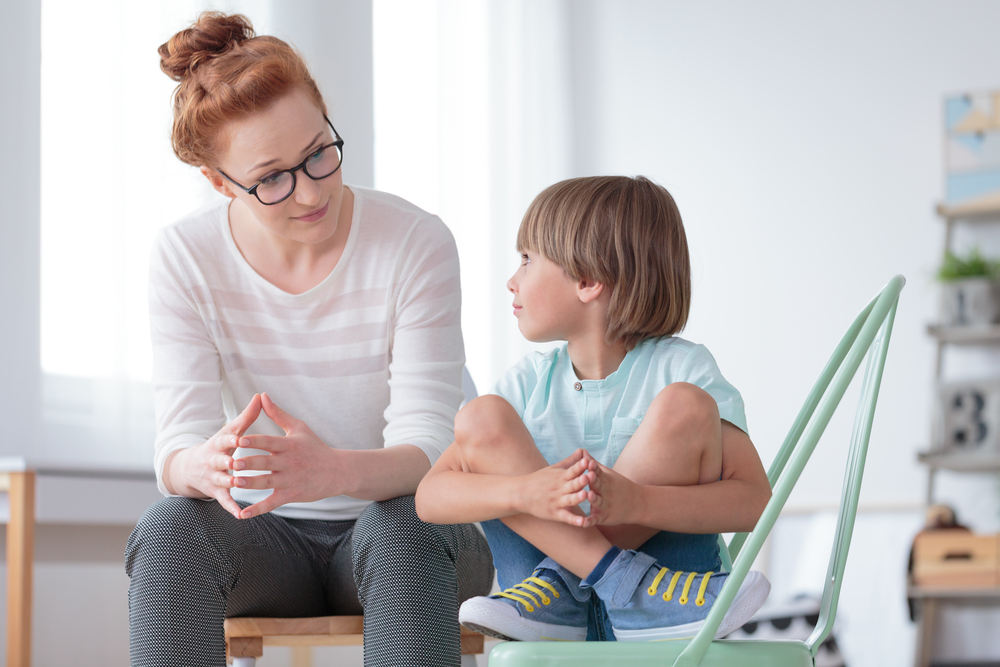How to speak to your Children and Adolescents about the Coronavirus Pandemic
Last updated on: December 13, 2021 • Posted in:It is a very difficult time for all of as news of Coronavirus is all around us and it is affecting our everyday lives. Many of us are at home social distancing or on lock down, and our children are not at school. Many of our children are aware that something is going, they may not know the exact details but they are aware something big and something scary is happening.
As a parent, this is something very new to negotiate. We have never lived through a pandemic before, and the world around us is very different. It’s ok to feel unsure of how to address this with your children.
Here are some ideas of how best to do this:
How can you speak to your children and adolescents about this virus?
Children need some information, but not too much, depending on their age. They will have heard bits and pieces from school and the news – so it’s good to know what they understand and then add to it from there. They need to feel safe and understood. This is a time when you need to be open and speak to them about what is going on.

Explain what is going on – pitch to their age
Depending on the age of your children you may be able to tell them together, or if there is an age difference between you children, you may need to tell them separately. There are many helpful videos pitched at children of different ages that can help you to explain this virus to each child at their level. You don’t want to scare them with too much information, but they will be aware something is going on so it is best if you are open to start the conversation with them.
Acknowledge that it is concerning
It is important that they do understand this is something that is serious and that it is concerning, but let them know what the government are doing and what you as parents are doing to keep them safe. They will sense you are stressed and anxious so it is best of they have some understanding of what is going on.
If you are open with them from the beginning, it will help them to process and to come to you if they are worried and have concerns.
Let them know they are safe with you
When discussing the virus with your children, let them know they are safe with you at home. Let them know what you are doing to keep them safe – staying at home as much as possible; social distancing and maintaining good hygiene with washing hands for more than 20 seconds regularly. This will help them to feel some control and things they can do to keep safe. It will also help them understand why they can’t go outside to play or have play dates with friends.

Find a balance of how much news they consume
There is so much news out there, all day every day – on TV and on social media. It is important with your older children to monitor how much news they are consuming, as too much news can become overwhelming and can cause anxiety. With younger children, be aware of what they are seeing on the TV and limit your intake of news while they are present. Also be careful of conversations that you have in front of you children – as you know, they listen to a lot more than we think they do.

Explain what it means to be vulnerable
Explain to your children what it means to be vulnerable and at risk with this virus. Explain that vulnerable doesn’t mean weak, but rather that to feel vulnerable is a normal response to uncertainty and risk. As well as that being vulnerable to this disease is often those who have underlying health conditions, or being older. Explain to them how we can protect the vulnerable and how each person, and the government, is working to look after our older and vulnerable population.
Give them ideas of how they can help
In this difficult time, there are often others that need help in your area. Either people who live alone, or are elderly or vulnerable may need some people. Ask your children for ideas of how they can help these people – offer to fetch groceries; give them a call to check in on them; or your children can draw pictures for them or write them a note that you can sanitize and drop off in your neighbor’s post box. By helping others, it helps to take the focus off your uncertainty, and helps us to feel we are less alone. It also gives us hope that we are all in this together.
Let your children feel safe to ask questions and share with you if they are worried
The more you are comfortable speaking about the virus and the changes you are all experiencing, the more your children will safe to ask questions and to express how they are feeling. They will feel it is ok to have feelings of worry and so will hopefully come to you when they are concerned. They will miss their friends and their usual way of life, so the more you speak to them, the more they will feel comfortable to express these feelings of sadness or anxiety.
You are not alone
If you are unsure of exactly how to address this virus with your children, there are many online sources to help you, as well as calling The Center • A Place of HOPE. They have kind, caring and experienced health professionals who are available to help you and guide through how best to discuss the coronavirus with your children. This is something new, something that we haven’t lived through before. It is ok to ask for help and to find advice on the best way to handle this. You are not alone, there is help available.
Related Posts
Ten Questions to Ask About Childhood Abuse
By: Dr. Gregory Jantz • Updated: December 13, 2021
Resilient as children are, childhood abuse, in its various forms, can decimate a child's sense of self. Here are ten questions to consider when processing the struggles associated with childhood abuse.
Is There More to Love Than What You've Experienced?
By: Dr. Gregory Jantz • Updated: November 7, 2023
One of the core traits of a dependent personality is difficulty accepting challenging or disturbing truths about self or others out of a need to maintain the status quo.
The Whole-Person Approach to Depression Treatment
By: Dr. Gregory Jantz • Updated: January 19, 2022
People arrive at the point of depression from many different places, indicating there are a variety of paths to recovery. In short, there is no one answer for depression and no single path to recovery. Just as the reasons for depression are a varied as the individuals who suffer from...
Get Started Now
"*" indicates required fields
Whole Person Care
The whole person approach to treatment integrates all aspects of a person’s life:
- Emotional well-being
- Physical health
- Spiritual peace
- Relational happiness
- Intellectual growth
- Nutritional vitality